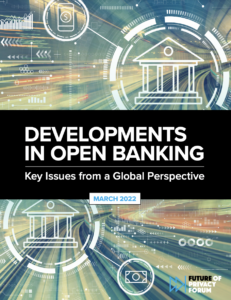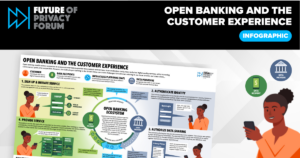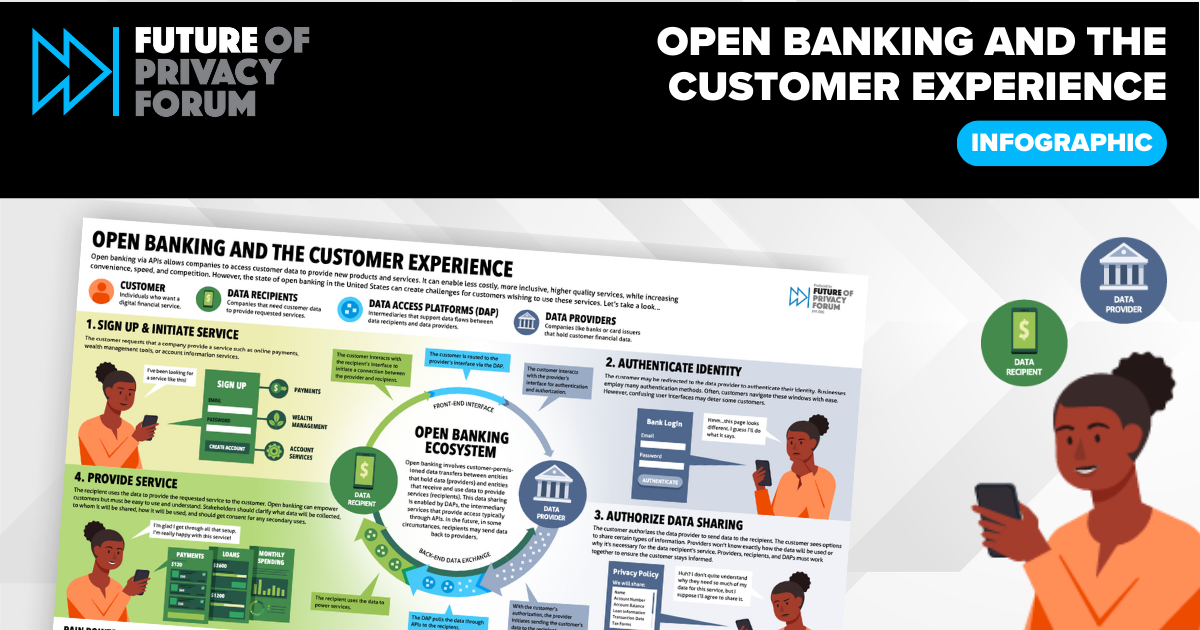The field of open banking refers to a data ecosystem in which data providers, such as banks and credit unions, send personal financial data to companies (e.g., fintechs) at a customer’s direction, in order to provide new products and services to the customer. Examples of these products and services include peer-to-peer payments, wealth management, and tax filing.
Open banking frameworks differ from country to country, but the interplay between open banking and data protection law raises important issues that all jurisdictions must address. Open banking can be a catalyst for greater competition by enabling new products and services that depend on the sharing of personal data. That sharing of personal data is integral to realizing these benefits presents privacy and security risks, including the risk of data breaches and unauthorized transactions. FPF works with a community of experts to identify the privacy and data protection risks in this space, educate policymakers about the challenges facing the open banking ecosystem, and develop best practices and policy recommendations.
Featured
FPF Releases Infographic to Explore Implications of Open Banking Data Flows and Security for Individuals
Today, the Future of Privacy Forum (FPF), a global non-profit focused on privacy and data protection, is pleased to release an infographic, “Open Banking And The Customer Experience,” visualizing the US open banking ecosystem. FPF’s open banking infographic is supported by over a year of meetings and outreach with leaders in banking, credit management, financial […]



